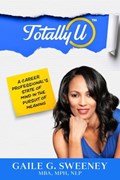The degrees and certificates say we are achievers. So far, the trajectory of our professional journey says otherwise. The moment we start working, a repetitive career cycle begins with a psychological construct of the human mind and the mutual dependencies with organizational entities at each distinctive stage. A dynamic experience throws the career professional into emotional disarray and confusion to find central existence, meaningfulness, and importance in their work environment. Subconsciously we acquire the state of mind of an Achiever, Drifter, or Defeater. Rather than viewed as a passive recipient, acting on impulse unintentionally to make sense of the career cycle, we have a responsibility to become aware of and understand our source of truth of our state of mind. Scientific appropriations on different degrees of validity and accuracy do not medicate our reality as we proactively chase the transition to a well-functioning desired stage and not surrender.The career cycle is subjective. It embraces career shifts and status adjustments for some of us who do not experience emotional discomfort, who do not need to change but want to change, and those who desire meaningfulness and are ready to shift position on the cycle. As the cycle turns, this shift produces positive and negative emotional thoughts, feelings, and behaviors. Emotions needed to motivate and regulate our career "burners" away from one state to another. With a high level of accountability and commitment for a healthy state of mind, the TotallyU concept, an innovative approach to personal awareness, solidifies any constructive plan that preserves a career professional's identity. Each unique role assumed gives a fresh perspective. A clear state of mind provides lightness and maturity we never had before to deal with work-related psychological experiences and awaken career possibilities for exponential emotional growth with our place of work. This book intends to help career professionals endorse and make a more profound connection with their career fallacy. Nevertheless, no matter how structured and reinforced an emotional experience is in thinking, feeling, responding, relating, and performing in their careers - no one on the career cycle is safe from a psychological impact.

